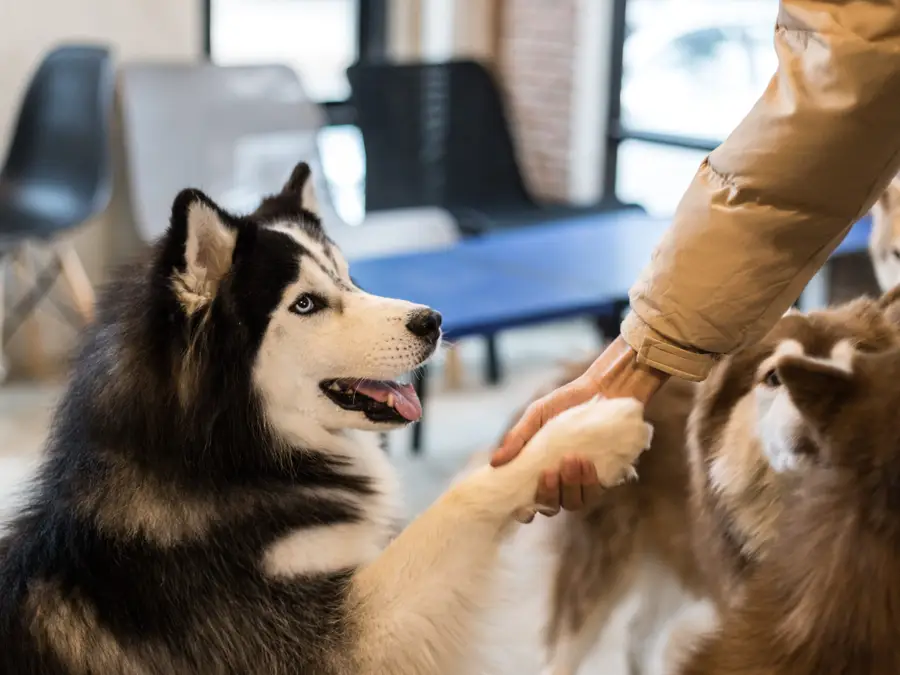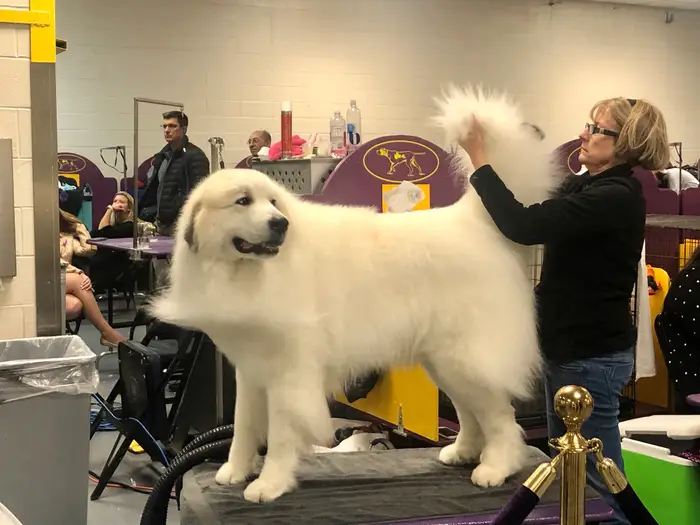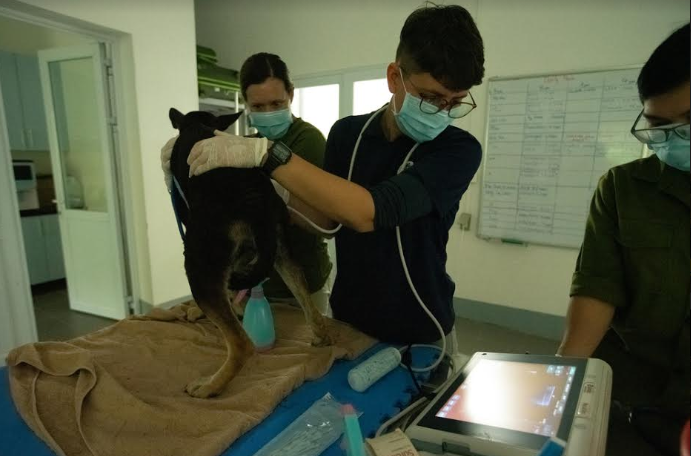Your dog may love and understand you, but not like your face's sight, study finds
 |
| Your dog may love you, but doesn't love the sight of your face, study finds. Photo: Yahoonews. |
The study, in the Journal of Neuroscience, shows that dogs aren’t wired to focus on human faces. What does make their brains spark is the glimpse of another dog. The sight of a human? Not so much.
Through MRI scans of humans and dogs watching videos — of both humans and dogs — Hungarian scientists learned that while humans have a specialized brain region that lights up when a face comes into view, dogs do not. Both dogs and humans, however, do have a brain region that sparks when a member of the same species comes into view.
“Faces are central to human visual communication … and human brains are also specialized for faces,” study co-author Attila Andics, an animal behavior researcher at Eötvös Loránd University in Budapest, said in an email. But that doesn’t appear to be the case for man’s best friend.
Dogs do pay attention to human faces, Andics, said. “They read emotions from faces and they can recognize people from the face alone, but other bodily signals seem to be similarly informative to them.”
In other words, dogs may notice our faces, and even the expressions on them, but they use all sorts of other information, such as body language and voice cues, to tell what we are up to. Humans, on the other hand, value most what they see on a face, said the Yahoonews.
To see if humans and dogs processed faces the same way, Andics and his colleagues recruited 30 humans and 20 dogs who were family pets. In the experiment, each human and each dog lay in an MRI machine while shown a series of two-second videos: a dog face, the back of a dog’s head, a human face and the back of a human head. The order in which thoe videos were shown varied with each run.
Dogs also use chemical communication much more than humans do, said Dr. Carlo Siracusa, an associate professor of clinical behavior medicine and director of the animal behavior service at the University of Pennsylvania School of Veterinary Medicine. The scent of another dog will reveal whether that dog might be of interest.
But dogs may have evolved to pay attention to human faces because they’ve also evolved to depend on humans, Siracusa said. “They try to understand from facial expressions what humans want,” he added. “How likely is it they are going to get something to eat rather than be punished. They are like toddlers.”
 |
| An Alaskan Malamute shaking hands with its owner. Shutterstock |
But a handful of new studies offer surprising insights about how our canine companions age, perceive human speech, and find their way home.
A study published last month found that dogs understand verbal communication just as we do, parsing out tone and then meaning as separate aspects of human speech.
Dogs may also use Earth's magnetic field like a compass to find their way home, other recent research revealed, according to the businessinsider.
And another study published this summer found that puppies age much faster than older dogs do — which means you're probably underestimating your dog's human-age equivalent.
Taken together, these recent discoveries may change how you understand your pet.
Dogs understand speech in the same way we do
 |
| A dog at the Westminster Dog Show. Photo: Anneta Konstantinides/Insider |
When humans hear someone speak, our brains divide the work of processing that communication between their left and right hemispheres. First, the right hemisphere focuses on parsing out the speaker's underlying tone, and then the left hemisphere processes the meaning of what we've heard.
Researchers discovered in 2014 that dogs' brains divvy up the task of speech processing in the same way, between their left and right hemispheres, though the scientists weren't sure of the order in which that happened.
The recent study, however, found that dogs understand tone first, then meaning, in the same order as humans. The authors examined the brain activity of 12 pet dogs — six border collies, five golden retrievers, and one German shepherd — using a functional magnetic resonance imaging machine.
They had the dogs listen to known praise words like "clever," "well done," and "that's it," as well as unknown words like "as if" and "yet" in both praising and neutral tones. The data showed that the dogs processed "simpler, emotionally loaded cues" like tone first and then "more complex, learnt cues," Attila Andics, one of the coauthors, said in a press release.
Dr. Katherine Houpt also wasn’t surprised by the new findings. “We always look at people’s faces, but dogs look at all of us,” said Houpt, a professor emeritus at the Cornell University College of Veterinary Medicine. “Dogs have other ways of [evaluating] people.”
Experiments have shown that dogs will be less likely to go to a person who has demonstrated selfish behavior, such as refusing to help someone open a jar or share some cookies, said Houpt, who was not involved with the Hungarian study.
But for those feeling sad about the findings, Houpt offered words of reassurance: “Your dog loves all of you, not just your pretty face.”
 | Dog slaughterhouse in Cambodia for Vietnamese import culinary preference shut down FOUR PAWS and animal rights activists in Cambodia have gained a small victory in their effort to end the trade in dog meat, convincing a ... |
 | International press highlights small rescue cat cafe in Hanoi A small rescue cat cafe in Hanoi has been covered by Agence France-Presse (AFP), French cooperative news agency, on one of its article released on occasion of the International ... |
 | Missing dog in an incredible 90-km-journey back home The four-year-old dog named Cleo traveled nearly 90km to her old house in Lawson, Missouri after gone missing. The incredible journey of the Labrador retriever ... |
Recommended
 World
World
Pakistan NCRC report explores emerging child rights issues
 World
World
"India has right to defend herself against terror," says German Foreign Minister, endorses Op Sindoor
 World
World
‘We stand with India’: Japan, UAE back New Delhi over its global outreach against terror
 World
World
'Action Was Entirely Justifiable': Former US NSA John Bolton Backs India's Right After Pahalgam Attack
Popular article
 World
World
US, China Conclude Trade Talks with Positive Outcome
 World
World
Nifty, Sensex jumped more than 2% in opening as India-Pakistan tensions ease
 World
World
Easing of US-China Tariffs: Markets React Positively, Experts Remain Cautious
 World
World







![[Photo Series]: The Dog (& Pet) Days of Summer](https://vietnamtimes.org.vn/stores/news_dataimages/2022/082022/23/15/croped/0af945ceae326da02e9a7f372bc9dc77.jpg)


